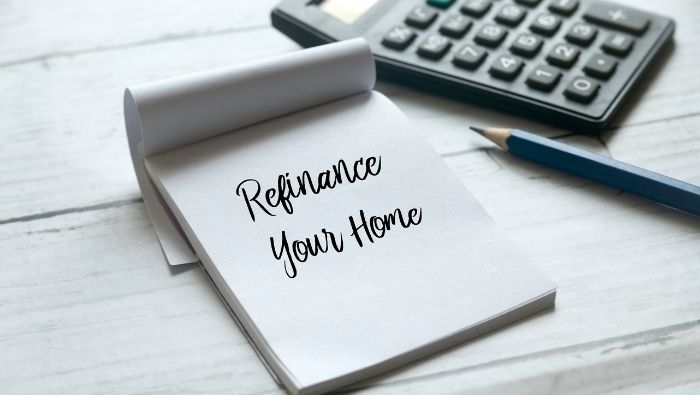Should You Refinance Your Home?
by Rick Kahler

We walk you through the math of determining whether you should refinance your home or not. It isn’t the right move for every homeowner.
Is now a good time to dig out your mortgage loan paperwork and consider refinancing?
Here’s how to find out whether it’s a good option.
First, check the current interest rate on your mortgage loan. Let’s assume you have a balance of $200,000, with principal and interest (P&I) payments of $1013 at an interest rate of 4.5%.
Next, begin to comparison shop. Call two or three mortgage brokers and find out the interest rate you could obtain on a new loan. They’ll need to know your household income, the value of your house, and the current balance on your mortgage. If you don’t know the current value of your home, you can find out its assessed value by calling or searching the website of your county Director of Equalization.
Ask the brokers to give you the interest rate and payments on a mortgage similar to the number of years left to pay on your current loan. Also ask about a shorter-term loan than your current mortgage, maybe comparing 15-year and 30-year mortgages. Usually, a shorter term has a lower interest rate. As of February 3, one local lender was offering a 30-year rate of 3.65%, with no origination fee, and a 15-year rate of 2.87%. Rates fluctuate daily, so be sure you find out the current rate.
Next get the broker’s estimate of your closing costs. These will include title insurance, an appraisal, a closing fee, points, and various other fees. Lenders sometimes charge points, also known as origination fees, which are included in your closing costs. One point equals one percent of the loan’s value. Mortgages described as “no-cost” or “zero points” do not carry this cost, but the interest rate may be higher, thus increasing the long-term cost of the mortgage.
Now you are ready to analyze whether getting a new loan makes financial sense. Let’s assume you find out you can obtain a new loan with a similar term at 3.65%, with monthly payments of $915 and closing costs of $1,900. The new payment is $98 less than your current $1013. Divide the $1900 closing cost by the $98 monthly savings. The answer, 19, is the number of months you need to keep the house in order to break even.
If you intend to sell your home in the next two years, or if your break-even point is 24 months or more, refinancing may not make sense. Few of us know what curves life may toss us, and looking two years ahead is my comfort level.
When shopping for a new mortgage, you may be tempted to reduce your payment even more by lengthening the term of your new loan. While the benefit is more short-term spending money, the downside is many more years of payments plus paying more in points and interest. I strongly suggest obtaining a new mortgage that is equal to or less than the number of years you have left to pay on your current loan.
Remember that a lower interest rate doesn’t automatically mean refinancing is in your best interest. The amount of money you save monthly, the amount of your closing costs, and how long you plan to live in your home are key variables that influence whether you should refinance your mortgage.
About the Author
Rick Kahler, MSFP, ChFC, CFP, is a fee-only financial planner and author. Find more information at KahlerFinancial.com. Contact him at Rick@KahlerFinancial.com or 343-1400, ext. 111.
Reviewed February 2022
Sign Up for Savings
Subscribe to get money-saving content by email that can help you stretch your dollars further.
Twice each week, you'll receive articles and tips that can help you free up and keep more of your hard-earned money, even on the tightest of budgets.
We respect your privacy. Unsubscribe at any time.
Wouldn't you like to be a Stretcher too?
Subscribe to get our money-saving content twice per week by email and start living better for less.
We respect your privacy. Unsubscribe at any time.
Popular Articles
On After50Finances.com
- 9 Things You Need to Do Before You Retire
- You Didn’t Save Enough for Retirement and You’re 55+
- When Empty Nesters Reorganize and Declutter Their Home
- Reinventing Your Career in Your 50s or 60s
- What Mature Homeowners Should Know about Reverse Mortgages
- 2 Reasons to Collect Social Security Benefits As Soon As Possible

